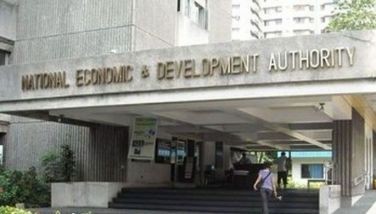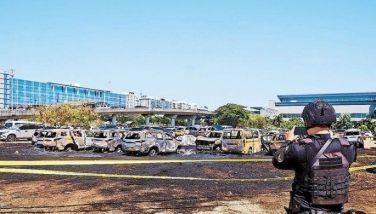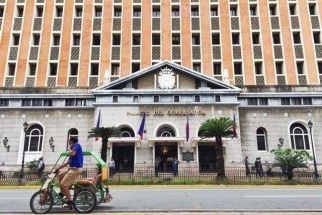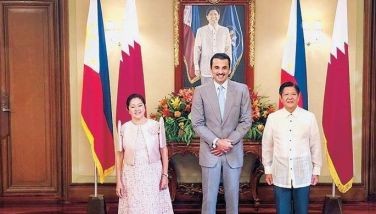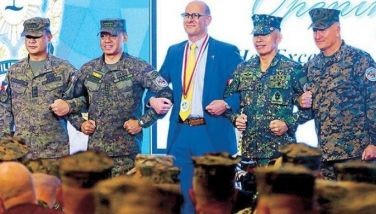A year of walking with China
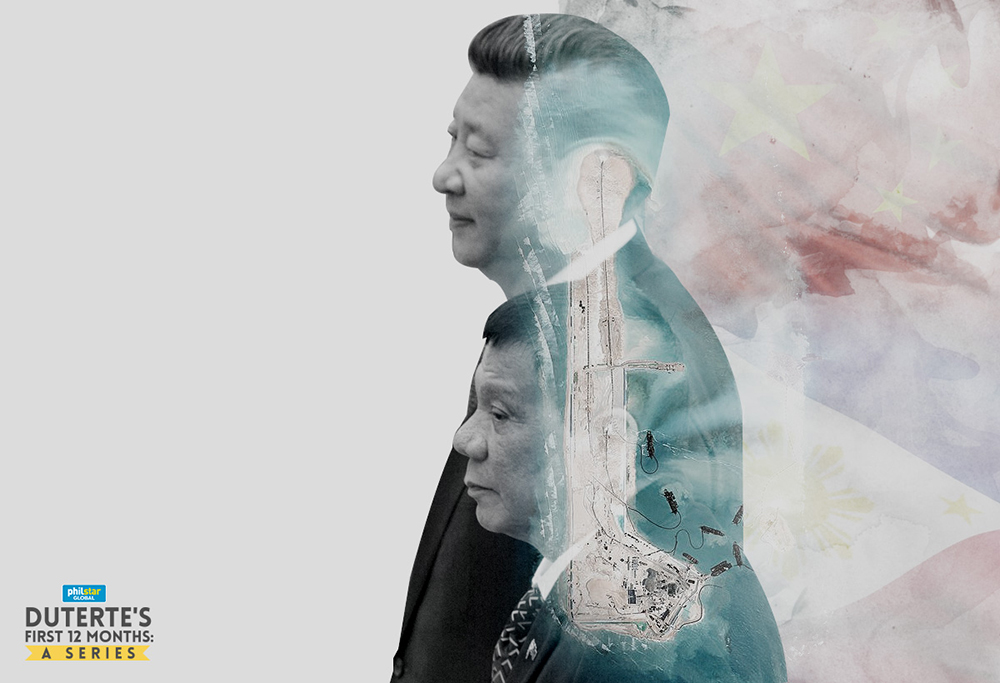
As soon as President Rodrigo Duterte assumed office last year, he announced that his administration would pursue an “independent foreign policy.”
This piece is a part of a news analysis series on the first 12 months of the Duterte administration.
President Rodrigo Duterte took an abrupt turn from his predecessor regarding his foreign policy. As soon as he assumed office last year, he announced that his administration would pursue an “independent foreign policy.”
Article II, Section VII of the 1987 Constitution provides that, “The State shall pursue an independent foreign policy. In its relations with other states, the paramount consideration shall be national sovereignty, territorial integrity, national interest, and the right to self-determination.”
It appears, however, that pursuing a so-called independent policy would mean appeasing China following the ruling of an international arbitral tribunal on the Manila’s complaint against Beijing’s nine-dash line claim over the South China Sea.
On July 12, 2016, the United Nations-backed tribunal based in the Hague, Netherlands issued a ruling invalidating China’s historic claims over the disputed waters. Beijing refused to honor the ruling and reiterated its position that it has a historic and legal claim over the South China Sea.
Duterte has met with Chinese President Xi Jinping thrice since the issuance of the arbitral ruling. The first was during his visit to Beijing in October 2016 where the two leaders signed several agreements between their governments. They met for the second time in November 2016 on the sidelines of the Asia-Pacific Economic Cooperation Leaders’ Summit in Lima, Peru. During their bilateral meeting, Duterte assured Xi that he would adopt a foreign policy that veers toward a China-led regional development.
A few days after the conclusion of the 30th Association of Southeast Asian Nations in Manila, Duterte received a phone call from Xi to discuss regional issues and how to strengthen ties with the 10-member regional bloc’s regional partners. This follows a watered-down ASEAN chairman statement which failed to mention the international tribunal’s ruling or militarization in the South China Sea. The ASEAN, under Philippine chairmanship, is set to push through with the enactment of a code of conduct on the South China Sea before the year ends.
Last May, Duterte went again to Beijing to attend the Belt and Road Forum for International Cooperation in Beijing. The president, however, skipped the opening ceremony of the two-day forum. The Chinese president had pledged $124 billion for his Silk Road plan which could help developing countries like the Philippines.
Duterte was able to raise with his Chinese counterpart the arbitral ruling during his second visit to Beijing in May but the president said Xi threatened that China would go to war if the Philippines will drill oil in the South China Sea. The Philippine delegation did not raise the arbitral ruling during the start of the discussions on a bilateral consultation mechanism on the South China Sea. China and Southeast Asian nations only settled for a “gentleman’s agreement” to prevent war or to keep the situation in the region stable.
De La Salle University Professor Renato De Castro said that the notion of shifting to an independent foreign policy is rhetorical and without substance as it would mean independence from the United States.
“For Mr. Duterte, independence means separation from US but in exchange for becoming like Cambodia or Laos—countries that are deemed tributary kingdoms of China,” De Castro said in an exclusive interview with Philstar.com.
On October 2016, Duterte announced that he is cutting ties with the US, the Philippines’ longtime ally and trading partner. Days after the announcement, he clarified that the separation from the US is “not severance of ties.”
Duterte had expressed his intention to end the Philippines’ war games with the US during his first months in office. The first Balikatan military exercises under the Duterte administration was shortened, scaled down and focused on humanitarian assistance and disaster response instead.
Dindo Manhit, president of the private think tank Stratbase ADR Institute, shared the same sentiment, noting that seeking new friendships and disregarding traditional partners does not improve the country’s ability to preserve national interest.
“Above all, the Philippines' interest as a smaller country is to ensure that international law prevails. International law is what evens the playing field between countries,” Manhit told Philstar.com, adding that the best proof of this is how the Philippines succeeded in its arbitration case against China.
The Philippines must be willing to use the arbitration ruling to strengthen its position if the bilateral consultation mechanism with China will work, Manhit said.
“Without a willingness to use the ruling to our advantage, what will our country be able to bring to discussion?” Manhit said.
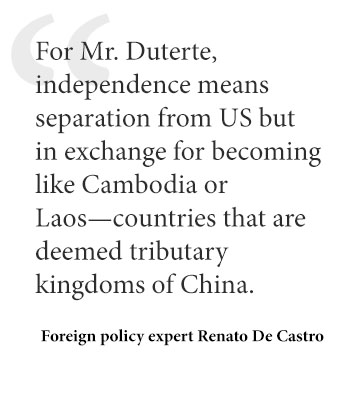 However, a bilateral approach in resolving the maritime dispute would mean that the stronger power would be able to use its influence and resolve the dispute according to its terms, according to De Castro. Duterte appears to have chosen China’s goodwill and economic largess over the Hague ruling.
However, a bilateral approach in resolving the maritime dispute would mean that the stronger power would be able to use its influence and resolve the dispute according to its terms, according to De Castro. Duterte appears to have chosen China’s goodwill and economic largess over the Hague ruling.
“Appeasements means that smaller power unilaterally extends concession to a bigger power. The Philippines has already set aside the Hague Ruling and has degraded its alliance with the US to earn China's good will and possibly, some economic side-payments,” De Castro said.
Manhit, however, noted that there is still room for policies to change or for events to change the decision-making of the Duterte administration as it concludes its first year. The government is highly urged to reconsider its current approach on the issue.
On the other hand, De Castro warned that the Philippines may follow the footsteps of Cambodia and Laos as a result of being obliged for economic reasons to favor China following its investments in the country.
“He (Duterte) wants the Philippines to be independent from the U.S. but a tributary kingdom of China… We will become like Cambodia and Laos, extremely dependent and subservient to China. Associate Justice (Antonio) Carpio used the term ‘filandization,’” De Castro said.
ALSO READ:
A year of Duterte's dystopian vision
A year of accelerated spending—or so they say
A year of battling through traffic and train queues
A year of hits, misses and postponed promises
A year of consistent inconsistencies
A year of fighting and talking (Part 1)
— Graphics by RP Ocampo
- Latest
- Trending














